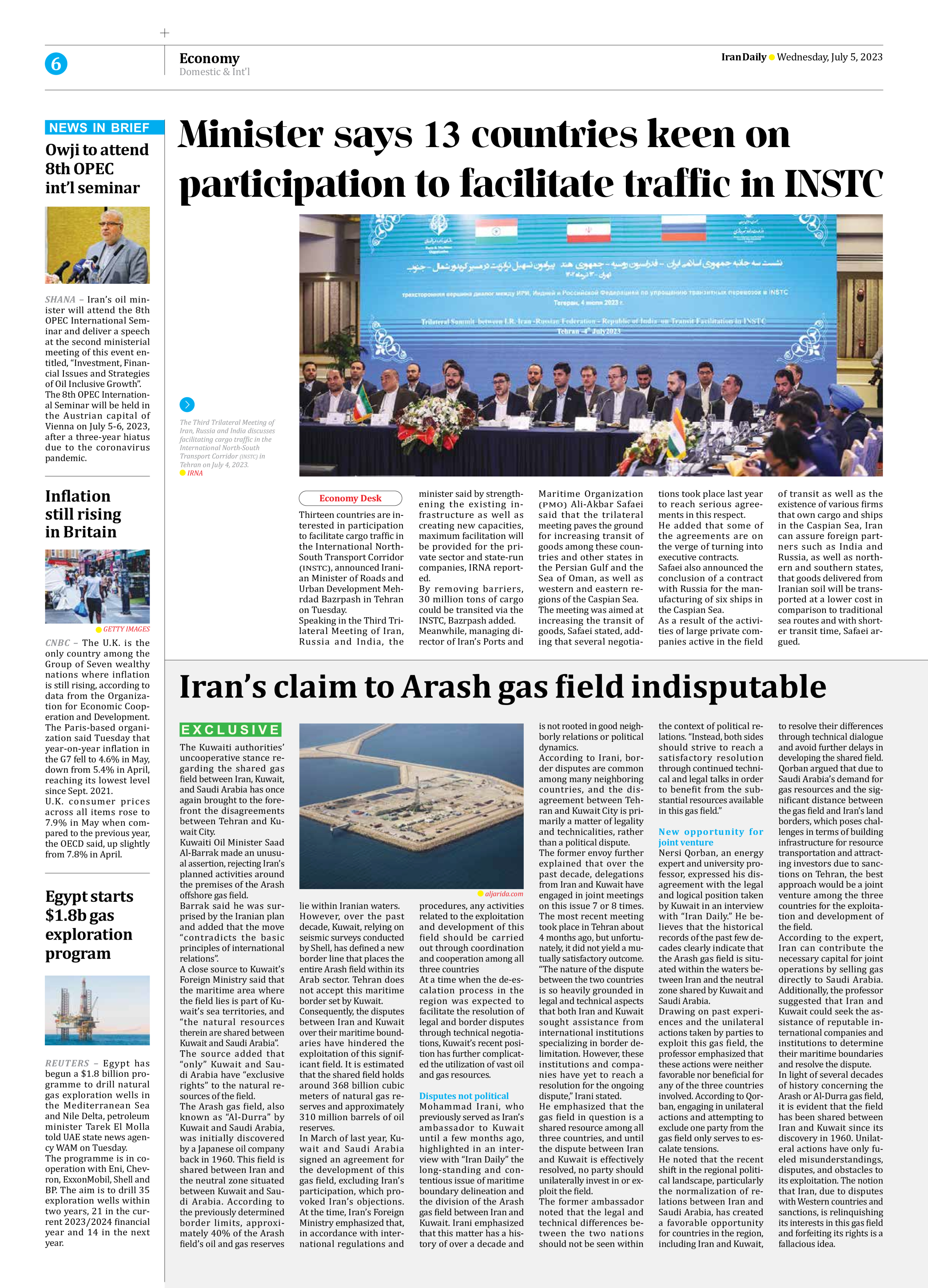
Minister says 13 countries keen on participation to facilitate traffic in INSTC
Thirteen countries are interested in participation to facilitate cargo traffic in the International North-South Transport Corridor (INSTC), announced Iranian Minister of Roads and Urban Development Mehrdad Bazrpash in Tehran on Tuesday.
Speaking in the Third Trilateral Meeting of Iran, Russia and India, the minister said by strengthening the existing infrastructure as well as creating new capacities, maximum facilitation will be provided for the private sector and state-run companies, IRNA reported.
By removing barriers, 30 million tons of cargo could be transited via the INSTC, Bazrpash added.
Meanwhile, managing director of Iran’s Ports and Maritime Organization (PMO) Ali-Akbar Safaei said that the trilateral meeting paves the ground for increasing transit of goods among these countries and other states in the Persian Gulf and the Sea of Oman, as well as western and eastern regions of the Caspian Sea.
The meeting was aimed at increasing the transit of goods, Safaei stated, adding that several negotiations took place last year to reach serious agreements in this respect.
He added that some of the agreements are on the verge of turning into executive contracts.
Safaei also announced the conclusion of a contract with Russia for the manufacturing of six ships in the Caspian Sea.
As a result of the activities of large private companies active in the field of transit as well as the existence of various firms that own cargo and ships in the Caspian Sea, Iran can assure foreign partners such as India and Russia, as well as northern and southern states, that goods delivered from Iranian soil will be transported at a lower cost in comparison to traditional sea routes and with shorter transit time, Safaei argued.







